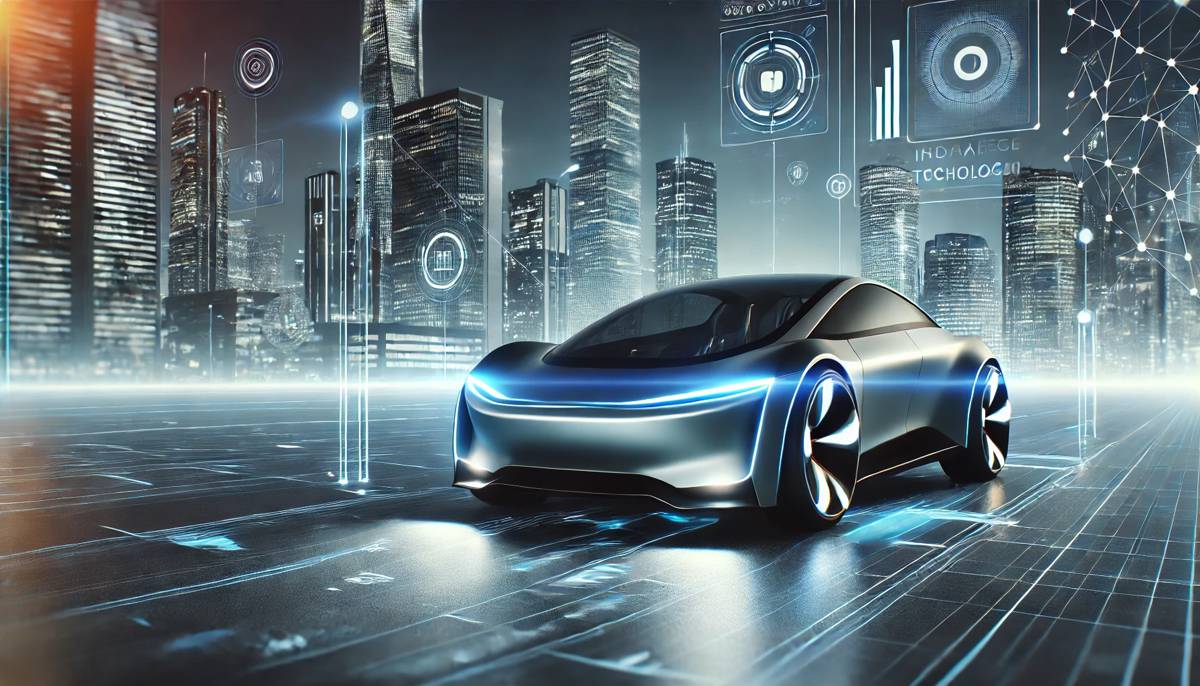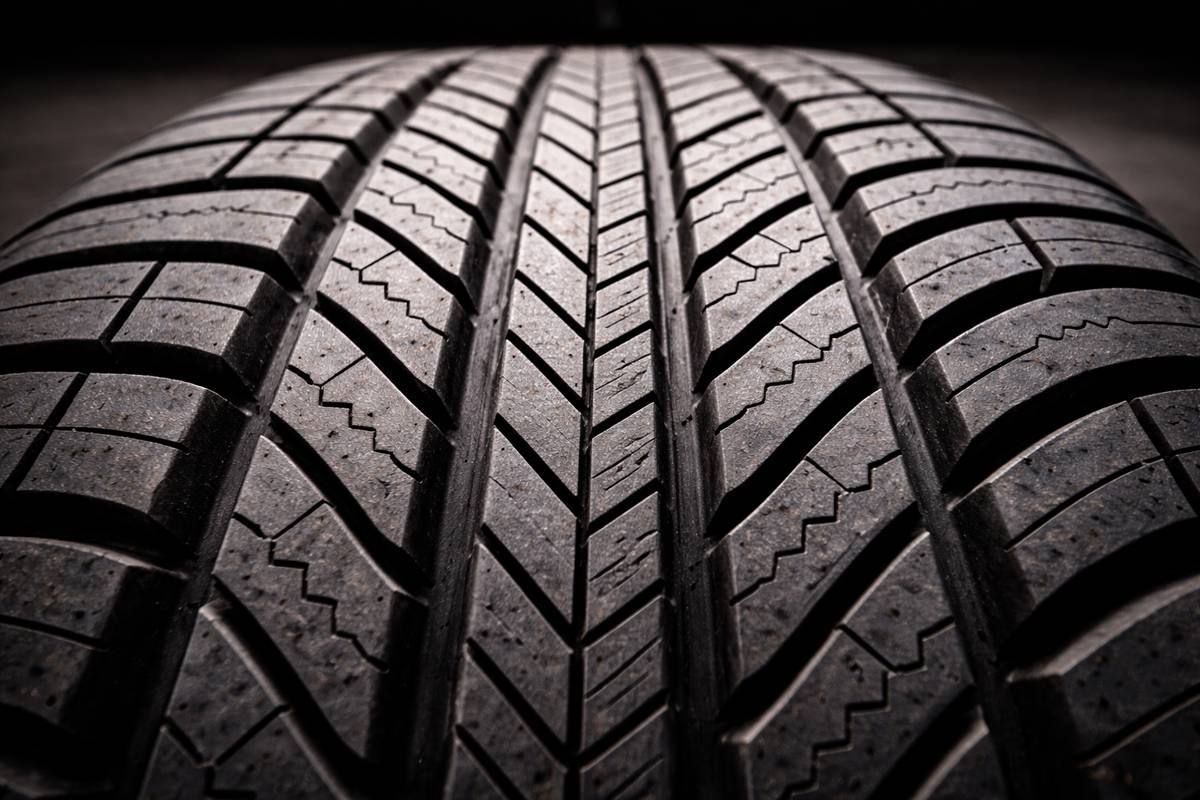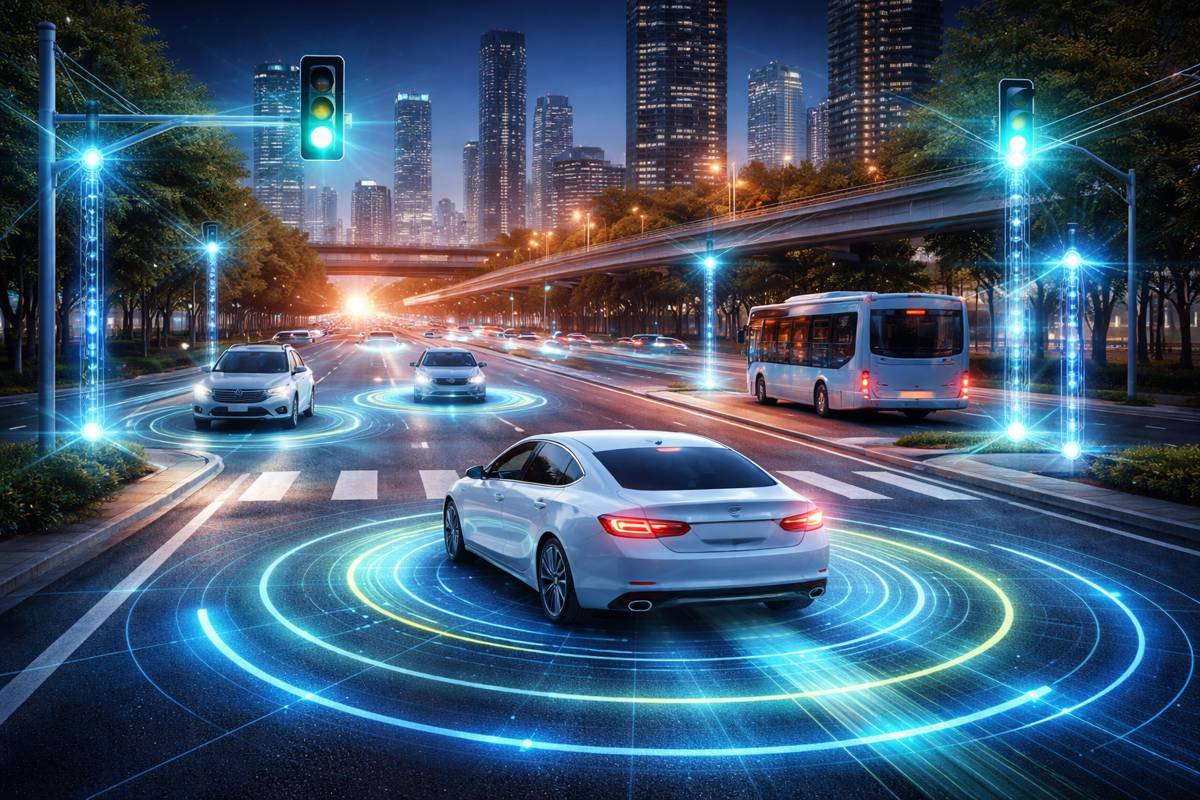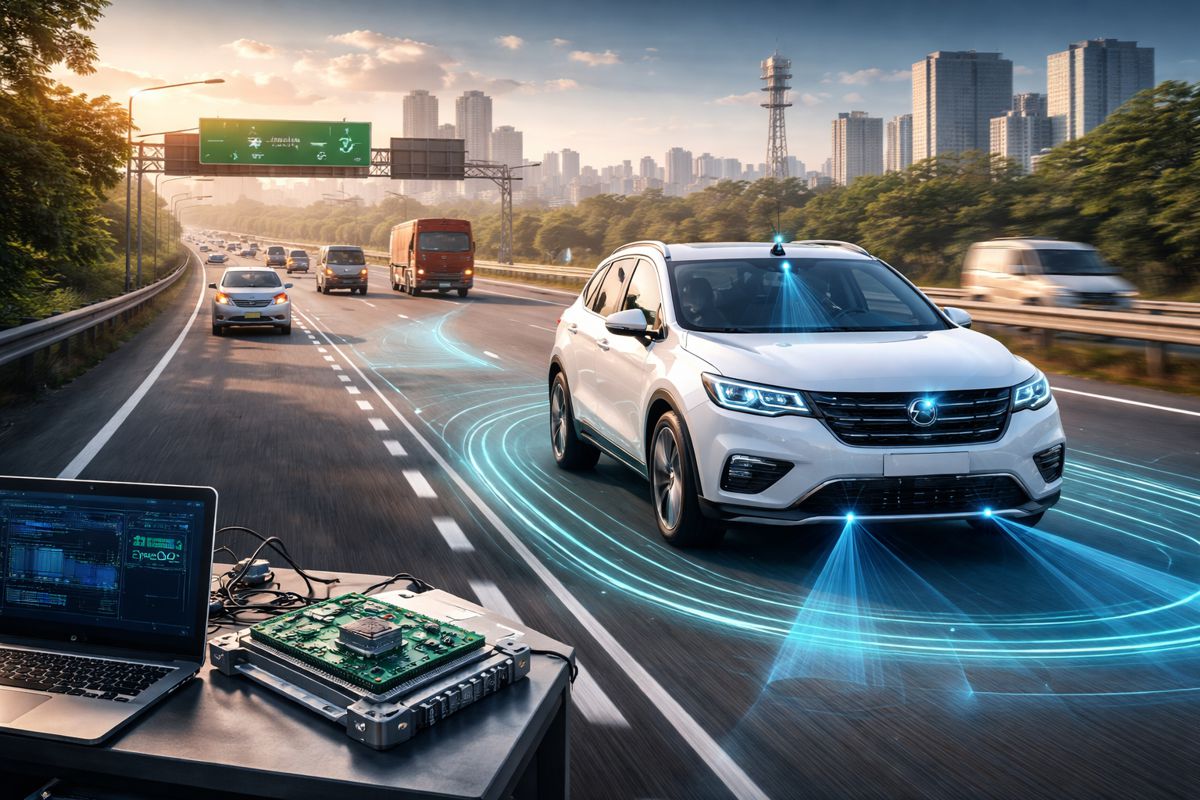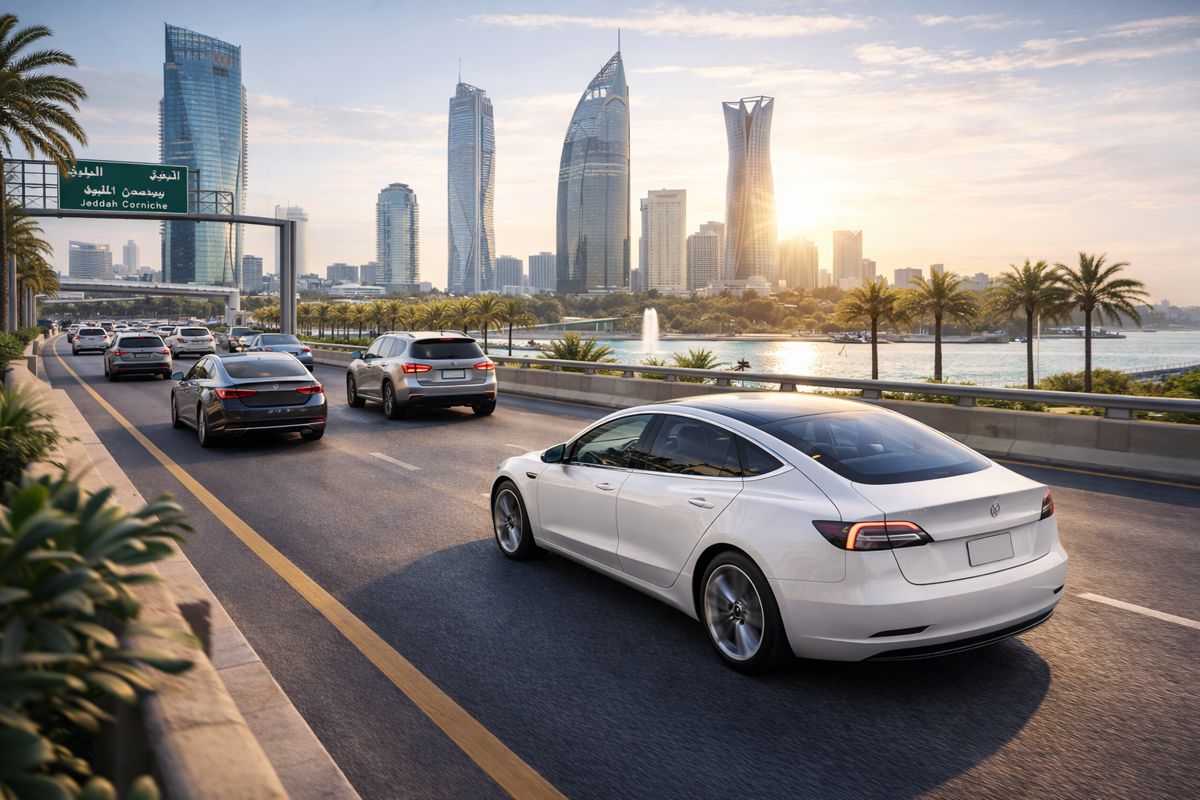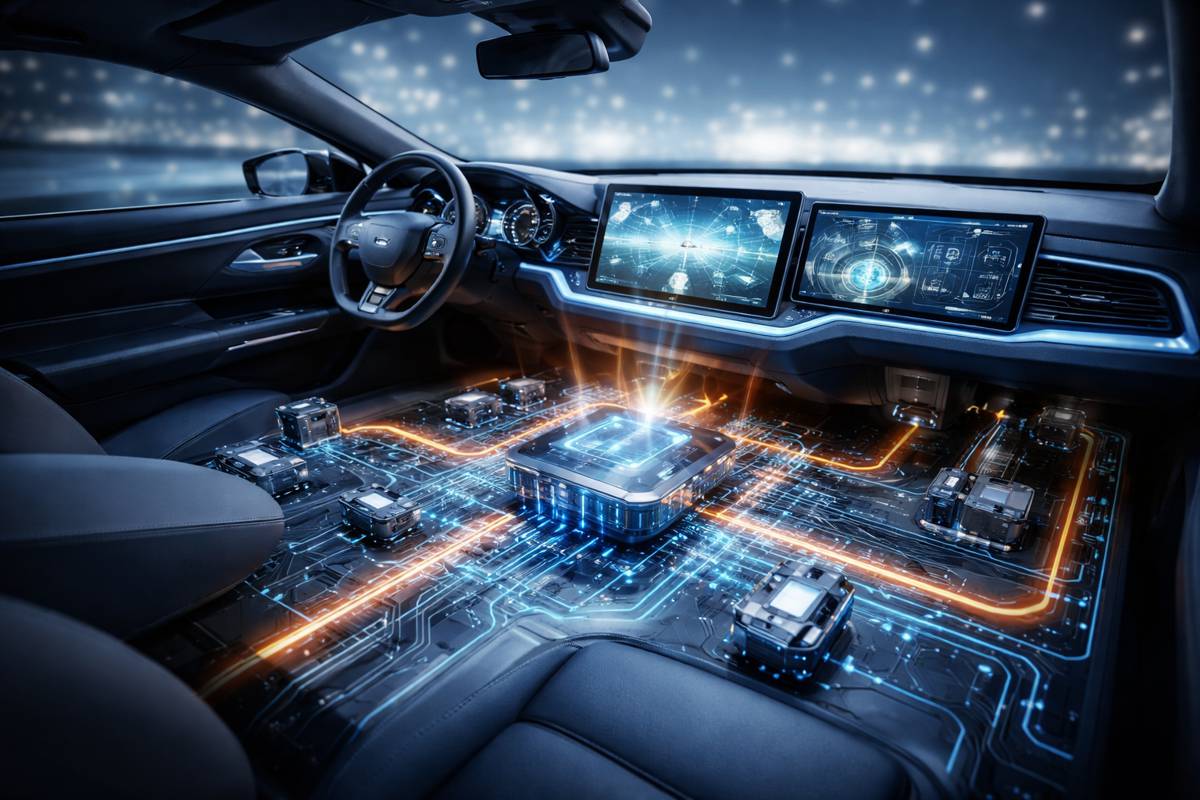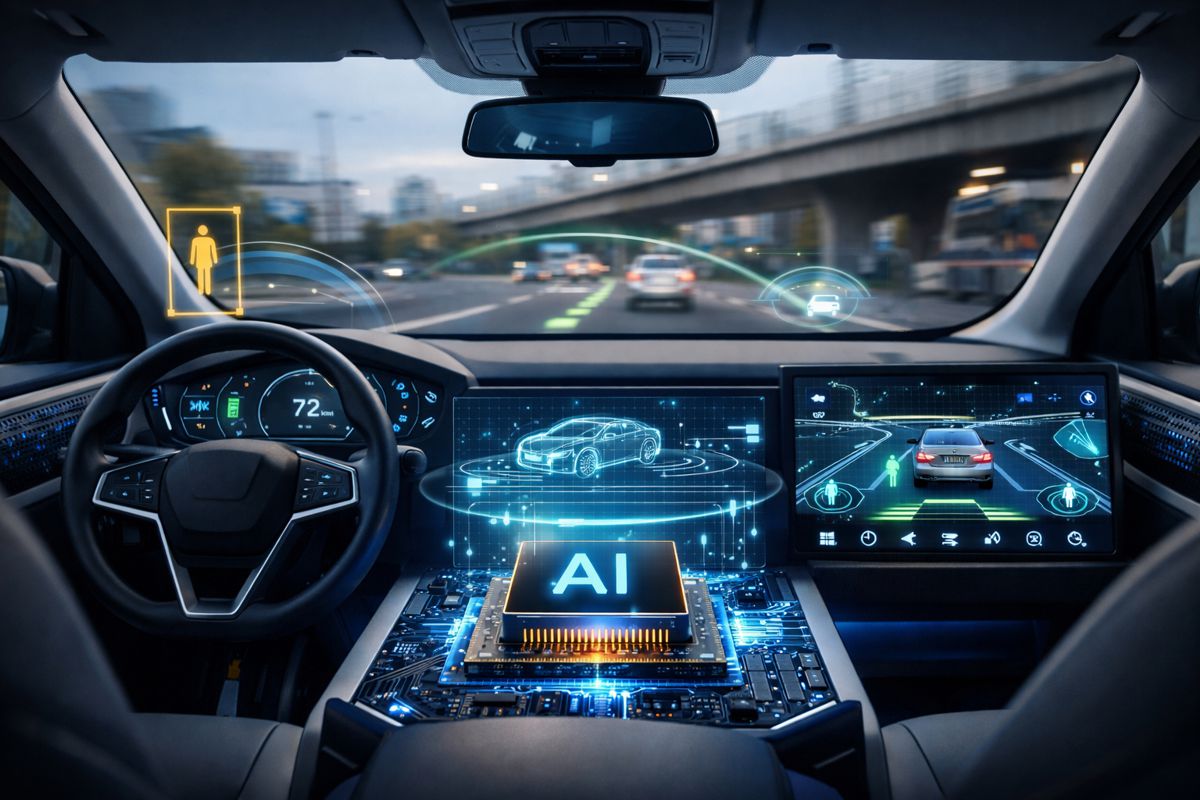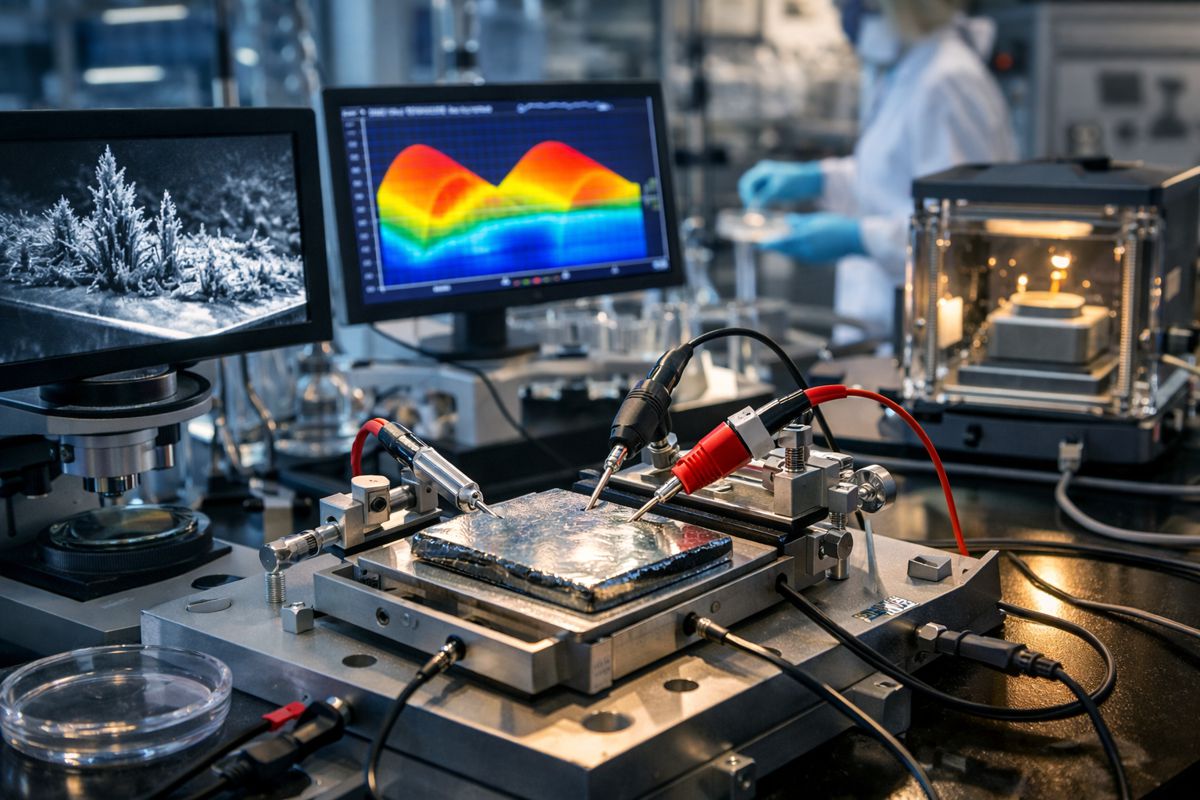Karma Automotive and Intel Lead the Charge in Software-Defined Vehicles
Karma Automotive, America’s only full-line ultra-luxury vehicle manufacturer, has taken a bold step forward in automotive innovation by partnering with Intel Automotive.
Together, they’re building the future of Software-Defined Vehicle Architecture (SDVA), a ground-breaking technology set to redefine the way vehicles operate and interact with their environment. This transformative collaboration was unveiled at CES 2025, where the duo showcased a host of innovations designed to make cars smarter, safer, and more efficient.
At the core of this partnership lies the upcoming 2026 Karma Kaveya super-coupe, which will debut with SDVA. According to Marques McCammon, President of Karma Automotive: “SDVA technology will be a game-changer for our vehicles, starting with the 1,000HP+ Karma Kaveya. It offers unparalleled advantages across computing speed, power, upgradeable functionalities, and vehicle connectivity.” The potential doesn’t stop there—SDVA is positioned to benefit the entire automotive industry, thanks to its open ecosystem developed alongside Intel.
CES 2025
At CES 2025, Karma Automotive joined Intel Automotive at the Venetian Hotel in Las Vegas to demonstrate how SDVA maximises powertrain performance and efficiency. Among the highlights was an Intel co-branded inverter, a crucial component for converting a vehicle’s battery’s direct current (DC) into alternating current (AC). This inverter employs Optimal Pulse Pattern programming, enabling improved eMotor efficiency and enhanced power management.
A simulated dyno test illustrated four driving profiles—Highway, City, Park, and Charge—showcasing metrics such as wheel torque, wheel speed, power output, and efficiency. Through Torque Ripple Reduction and Range Boost parameters, the demonstration revealed significant energy savings and increased range. These advancements underscore the role SDVA plays in making vehicles more sustainable and energy-efficient.
Jack Weast, Intel Fellow and Vice President of Intel Automotive, highlighted how their cutting-edge technologies, including AI-enhanced computing and software-defined zonal controllers, are creating a scalable and sustainable automotive future.
“By embedding intelligence throughout the vehicle’s architecture, we’re enabling better performance, safer roads, and new opportunities for innovation,” Weast said.
Pioneering Open Standards for Industry-Wide Benefits
Karma Automotive and Intel are committed to fostering collaboration across the automotive sector. Their open ecosystem for SDVA aims to standardise software development practices, reduce costs, and accelerate innovation.
“Safety and connectivity shouldn’t be differentiators—they should be essentials,” McCammon emphasised. By sharing validated technologies and protocols, the partnership seeks to make advanced automotive solutions accessible to a broader range of manufacturers.
The collaboration’s impact extends beyond Karma’s vehicles. Karma Connect, the company’s proprietary Vehicle Data Management and Over-the-Air services platform, already serves one of the world’s largest Original Equipment Manufacturers (OEMs). This positions Karma as a key player in the industry’s shift toward interconnected, software-defined systems.
Emergency Response Redefined
In a separate but equally vital initiative, Karma Automotive is working with the Connected Vehicle Systems Alliance (COVESA), UC Riverside, and ROADMEDIC.AI to revolutionise emergency response systems. The 9-1-1 Dispatcher Visibility Demonstration Project, showcased at CES 2025, aims to reduce emergency response times and enhance first responders’ preparedness through real-time data transmission from vehicles.
According to the National Institute of Health (NIH), every minute’s delay in emergency response increases fatality odds by 2.6%. Karma’s technology leverages SDVA to provide critical crash data directly to 9-1-1 centres. From occupant location and injury severity to vehicle extrication instructions, this system ensures responders have the information they need before arriving on the scene.
ROADMEDIC.AI’s CEO, Lawrence E. Williams, described the collaboration as a “25-year journey brought to life,” adding that it has the potential to save countless lives by eliminating delays and inconsistencies in emergency communications.
Bridging the Gap Between Innovation and Safety
The 9-1-1 Dispatcher Visibility Project exemplifies how Karma Automotive balances innovation with societal impact. Existing systems often rely on telematics or manual data inputs, which can lead to delays. By contrast, Karma’s solution uses AI-powered connectivity to instantly deliver multi-layered crash data to various emergency response stakeholders, bypassing intermediaries and saving precious seconds.
The technology will debut in Karma’s 3rd Generation Revero sport sedans, with pilot programmes providing insights for broader industry adoption. As McCammon noted, “By standardising our approach, we can improve safety universally while reducing development costs and accelerating time-to-market for new technologies.”
A Visionary Future for Ultra-Luxury Vehicles
Karma Automotive’s commitment to innovation extends beyond safety and efficiency. The company’s line-up—from the Revero sport sedan to the 2026 Karma Kaveya super-coupe—embodies California’s spirit of boldness and creativity. Each vehicle combines luxury with cutting-edge technology, offering discerning customers unparalleled performance and sustainability.
The 2025 Karma Invictus, set to launch in Q1, epitomises this vision. Built on the Karma Cloud Services platform, it integrates advanced connectivity features, making it a showcase for the company’s technological prowess. Similarly, the Gyesera four-seater and the Kaveya super-coupe demonstrate Karma’s ability to push the boundaries of design and engineering.
Building Bridges for a Smarter Automotive Ecosystem
Karma Automotive’s partnerships with industry leaders like Intel and organisations such as COVESA underline its commitment to collaboration and innovation. By developing open standards, the company is laying the groundwork for a more connected, efficient, and sustainable automotive industry.
As Marques McCammon aptly stated: “Together with our partners, we look to democratise development and share the learnings to benefit the broader industry and community at large.” With its pioneering technologies and forward-thinking approach, Karma Automotive is not just driving change—it’s steering the entire industry toward a brighter future.
